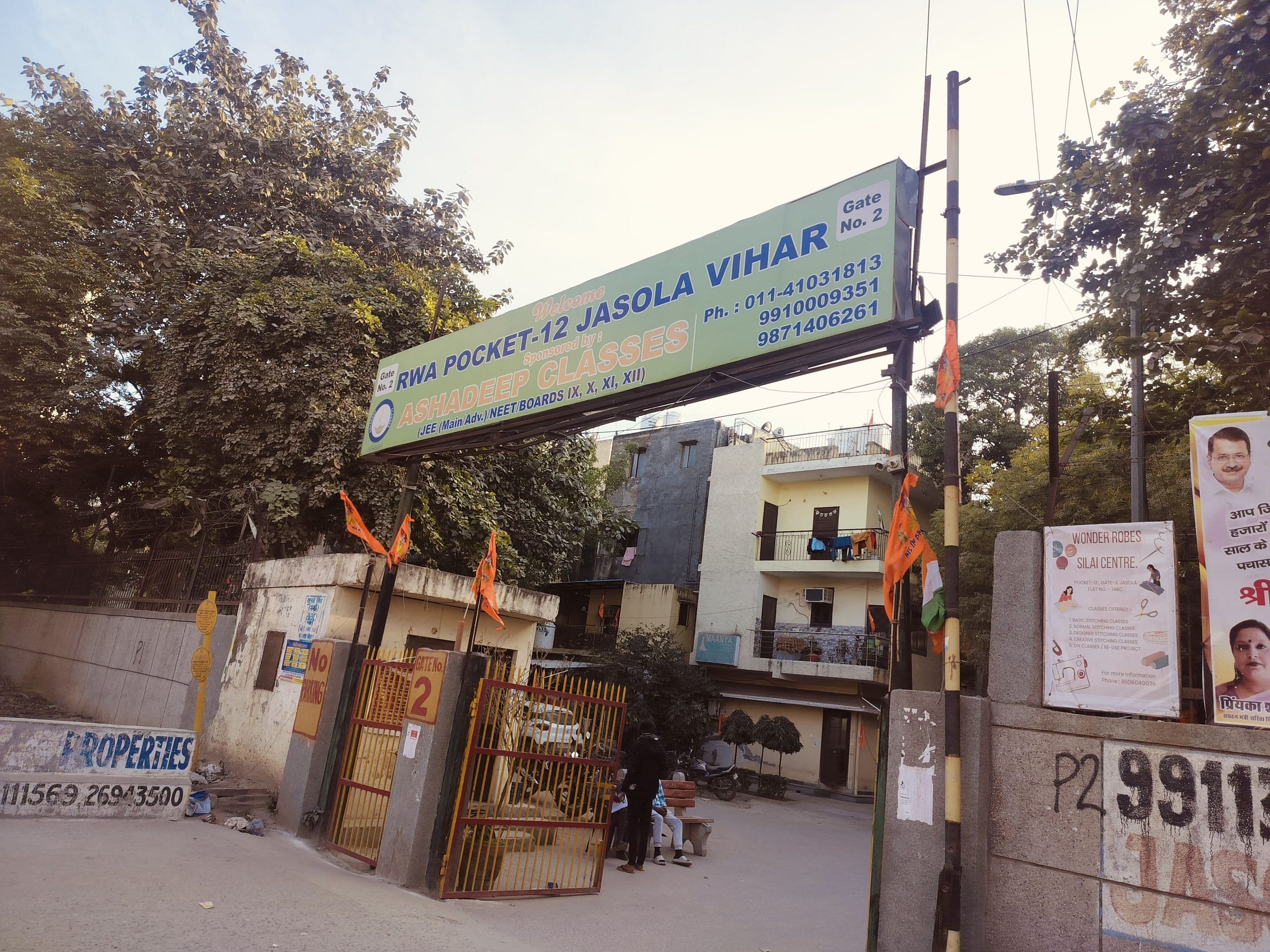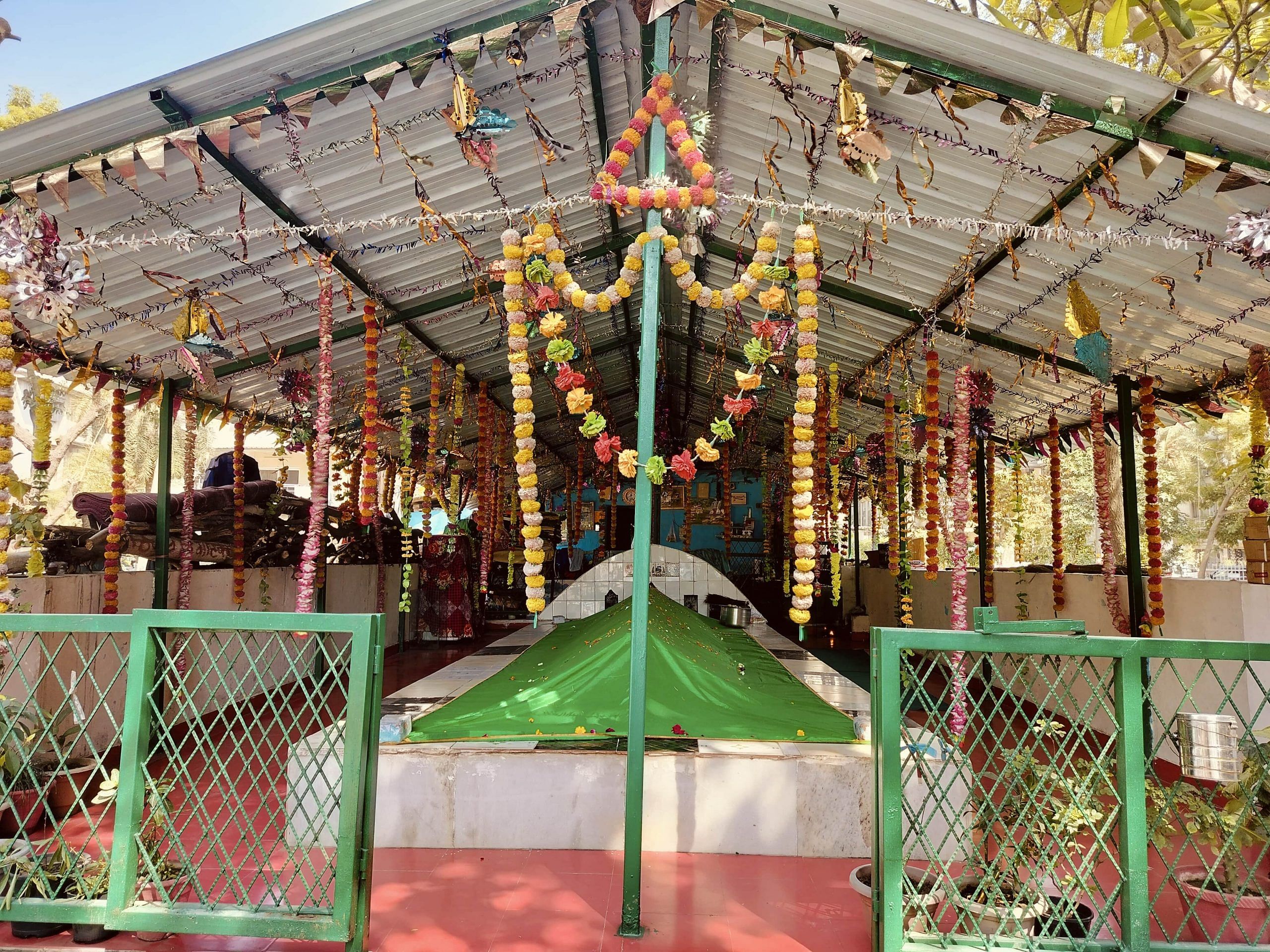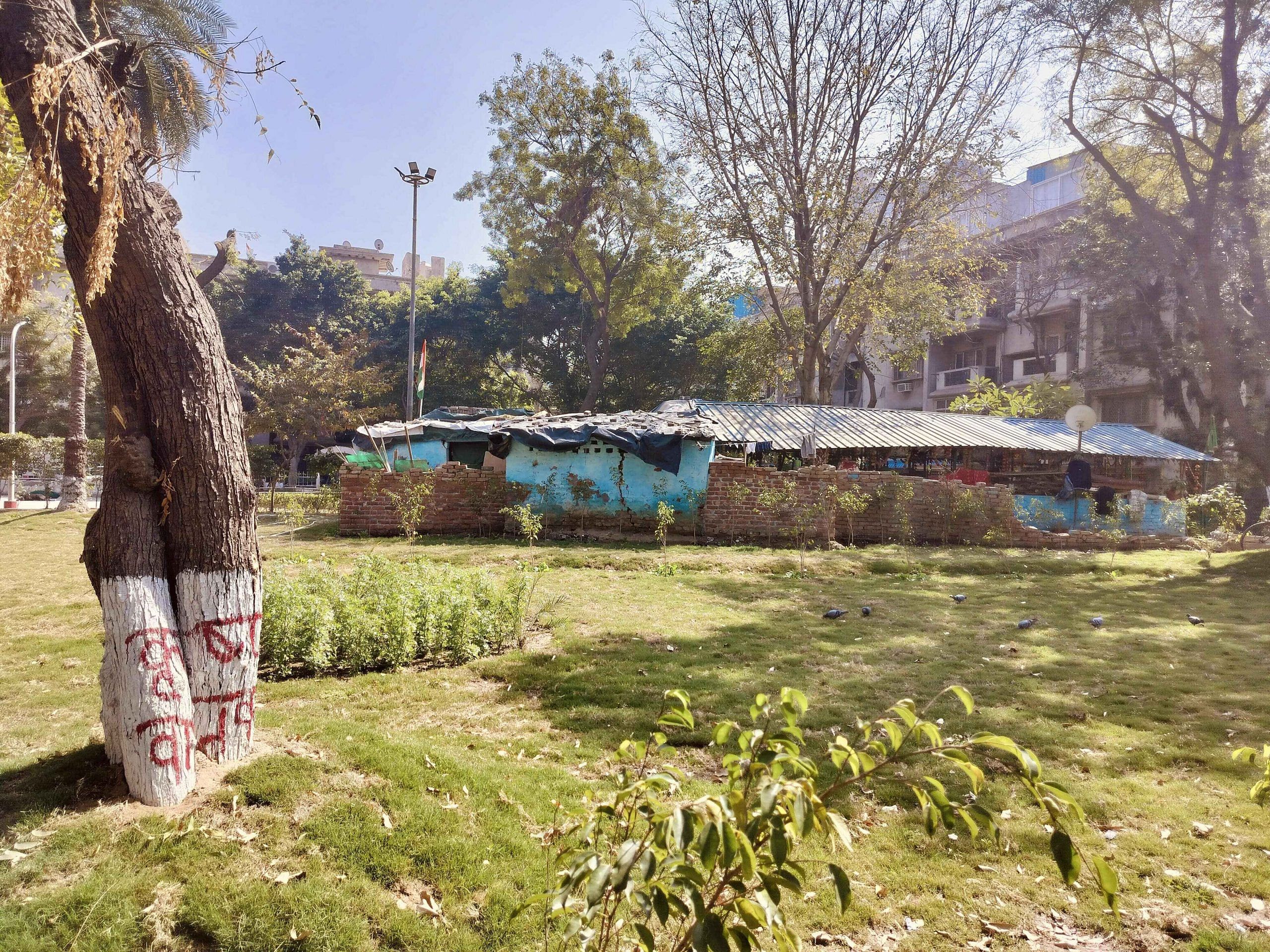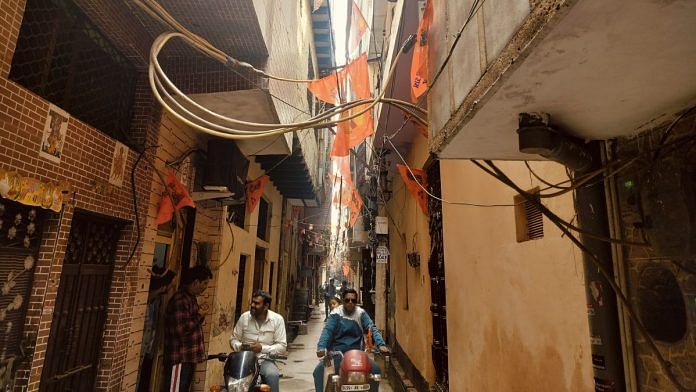New Delhi: An insidious rumour was circulating in New Delhi’s Pocket 12 Jasola—if Shabnam Khan got elected as the society’s president, she would destroy a small Hindu temple near Gate 2 and build a mosque there for daily namaz.
“Can you believe the kind of hate that has entered the hearts of people? They fight RWA elections with the same polarising narrative as state or general elections!” Khan said at her residence while speaking to ThePrint. She was leading a team of five Muslim women for the RWA elections conducted in May last year and lost to a majority Hindu campaign that had one woman representative out of seven candidates.
“During the campaigning, the other party was making this out to be an India-Pakistan match, [implying] that voting for my team would be akin to supporting Pakistan!” Her opponent, advocate Ravindra K Sharma, denies this.
With the rise of Hindutva politics in India, Muslim residents increasingly struggle to secure housing in Hindu-majority localities or find a vibrant community life in gentrified neighbourhoods, often confined to areas pejoratively labelled as ‘Muslim ghettos’. Resident Welfare Associations, predominantly governed by Hindus, have emerged as self-appointed governance bodies that dictate who can live where. Their moral policing tactics have made them akin to urban khap panchayats. Animosity toward Muslims is evident in society WhatsApp groups and in the lack of assimilation of Muslim residents within these communities. However, far from being deterred, these emboldened RWAs are becoming even more brazen in their anti-Muslim rhetoric.
In this gully, many Muslims are buying flats. But they have been behaving well since 22 January. We ensured to put up many Ram Mandir flags. They have behaved well since we put up the flags—Devraj Sharma, president of Seelampur RWA
Tikender Pawar, former Shimla deputy mayor and an expert on urban development issues, says that while RWAs were set out to be democratic bodies, they have morphed into “the most dangerous neighbourhood committees”. “RWAs have become highly exclusive bodies and urban authoritarian regimes. They don’t give space to Muslims or Dalits and are contributing to making cities ghettoised and financially centralised.”
Last year, a threatening banner in Brahmpuri in North East Delhi declared that Hindus weren’t allowed to sell houses to Muslims, and if they did, RWAs would not give a green signal for colony registration. In Jaipur’s Nandpuri, posters were recently put up advising residents against renting or selling property to Muslims. In Kanpur, mayor Pramila Pandey has demanded a law banning Muslims and Hindus from selling their houses to each other.
Deepak Kumar, president of the Federation of Apartment Owners Association in the trans-Hindon area, Ghaziabad, says the number of Muslim apartment owners is extremely low in the area. “Only one percent of the owners are Muslim. Most RWAs are unwilling to rent or sell flats to Muslims,” he told ThePrint.
Kumar says that his policy of non-discrimination hasn’t gone down well with some residents of the society he lives in. “Some residents approach me in private and express concern about the rising number of Muslim families in our society since we don’t discriminate. It’s unfortunate,” he says.

Also read: 2020 riots changing Delhi. Muslims, Hindus leaving old neighbourhoods, moving to ghettos
Leaving home
Khan plays the recording of a call from a neighbour who wrote derogatory words for her in a WhatsApp group: “I am sorry; I didn’t mean to call you those words. Believe me, I am not Islamophobic!” The interaction was a sign of just how heated things had become during the RWA election. “The use of the word ‘mulli’ has become very common,” she said, adding the neighbour apologised after she filed a police complaint.
RWA president Rajendra Sharma denies the polarised nature of the campaign. “I joined the campaign just one week before the elections; I don’t know of any such messages or rumours,” he said.
Khan says the anti-Muslim rhetoric has made her leave all society WhatsApp groups, which are hardly used for sharing any relevant information. And countering a hateful message only invites further attacks. “I don’t need any information from the group; I get by,” she says.
Only one percent of the owners are Muslim. Most RWAs are unwilling to rent or sell flats to Muslims—Deepak Kumar, president, Federation of Apartment Owners Association
Pocket 12, Jasola, is near Okhla Vihar and is a mixed society—by its residents’ estimates, Hindus comprise 60 per cent of the neighbourhood, while Muslims and other minorities account for the rest.
Since the Delhi riots in 2020, Hindus and Muslims have both migrated from riot-affected areas. Devraj Sharma, president of Seelampur RWA, boasts about intimidating the new Muslim residents in his area using Ram flags. “In this gully, many Muslims are buying flats; they don’t participate in the society or anything. But they have been behaving well since 22 January—we ensured to put up many Ram Mandir flags, so Muslims can remain calm. They have behaved themselves since we put up the flags,” he says.
The larger national mood and conversations about hijab and namaz are percolating to the lowest citizen groups, the RWA. Muslim residents are self-censoring and opting to keep a low profile and visibility to avoid trouble.
Another Muslim resident of a society in Noida notes that while all religions are celebrated in his society, not even a message wishing Eid is sent on WhatsApp groups. “Holi, Christmas, Diwali, even Lohri, all are celebrated in my society, but not Eid. It may be a small thing, but it makes me feel weird. There are no Iftar party invitations on Eid, nothing; it’s not a day of note,” he says.
Holi, Christmas, Diwali, even Lohri, all are celebrated in my society, but not Eid. It may be a small thing, but it makes me feel weird—a Muslim resident of a society in Noida
These micro-aggressions can add up. The resident, who works in advertising, says inviting people wearing cultural Muslim markers such as the skull cap or the burqa also becomes uncomfortable. “It’s not like anyone has said anything. But…I don’t know…I am just acutely aware of the atmosphere and what people might say.”
Also read: Gujarati Muslims struggle to buy Hindu property. Disturbed Areas law weaponises real estate
Compromises and vocal politics
Muslims are stuck between a rock and a hard place. While Hindus are reluctant or even actively hostile to renting properties to them, Muslims criticised for living in predominantly ‘Muslim localities’.
Influencer couple Abhi and Niyu caused a social media uproar with their vacuous post on X after clashes in Mumbai’s Mira Road in January. “In India, there cannot be an area designated to a particular religion,” the couple wrote. In replies, many users pointed out that Muslims are forced to live together in certain areas due to housing discrimination.
Ghazala Jamil, a professor at Jawaharlal Nehru University (JNU) specialising in neoliberal urbanism, explains how rental housing discrimination affects the economically well-off Muslims the most. “Because Muslim areas are stereotyped as dark, dingy, criminal spaces, some Muslims who are well-to-do seek to leave these areas because of the ‘ghetto’ pejorative associated with them.” Unlike poorer Muslims, they have the financial and cultural resources to flee the negative labels and experiences. This class can also articulate these problems in the media, so their perspective is well-reported.
Because Muslim areas are stereotyped as dark, dingy, criminal spaces, some Muslims who are well-to-do seek to leave these areas because of the ‘ghetto’ pejorative associated with them—Ghazala Jamil, JNU professor
But Muslims residing in Hindu-majority areas find themselves compelled to self-censor and cannot fully express their cultural identity and practices, Jamil points out. “Very small things can make you anxious or nervous. And the fear or anxiety increases every time an incident of mass violence is reported, depending on how friendly or unfriendly the neighbours are,” she says.
But there are people who defy the set norm and pay the price, which includes being shunned by society. Ishrat Rizvi is one such person.
Rizvi was widely known as an able tuition teacher in Indirapuram’s Shipra Sun City, where she had been living for almost two decades. But for the last few years, students have stopped turning up on her doorstep. She’s a hijab-wearing outspoken Muslim who counters anti-Muslim messages on society groups and writes lengthy essays on Facebook—and her neighbours no longer want to associate with her.
As polarising politics picks up steam in the country, Rizvi’s interpersonal relationships have changed drastically. “I used to have a thriving social life. People frequented my house for tea and snacks, and I would be invited over. Now they ignore me on the streets. Relationship with my neighbours is limited to awkward greetings if we bump into each other at the grocery store,” Rizvi says agitatedly.
Sitting in her two-bedroom flat, Rizvi talks about the everyday struggles of living in the oldest society of Indirapuram. It’s infamous for its menacing monkeys, multiple street dog gangs, and cat-sized rats.
People used to frequented my house for tea and snacks, and I would be invited over. Now they ignore me. Relationship with my neighbours is limited to awkward greetings at the grocery store
There was a time when she and her husband actively participated in everyday society functions like annual fetes, competitions, or festival celebrations, but that stopped when hateful messages against Muslims started spreading on WhatsApp groups. “I am not one to stay silent. When people share disinformation about Muslims, like they especially did during Tablighi Jamaat (incident), I don’t stay silent. A lot of Muslims choose to remain silent for fear of retribution,” she says.
Not being ‘a silent Muslim’ has led to people disassociating with her. She’s active on Facebook and consistently makes argumentative posts. On WhatsApp, some groups she left on her own; some she was kicked out of for entering into arguments with the members over communal posts.
But the reach of communalism isn’t limited to WhatsApp groups. Rizvi says the RWA has started encroaching upon the land of a decades-old mazaar, close to her apartment.

“It’s said that Shipra Sun City is built on a graveyard. The story goes that when the builder tried to demolish the mazaar, his father died. So he left three plots around the mazaar and built a place of worship there,” she says.
Now, a 9-foot shrine of a man stands in the society, visited by both Hindus and Muslims, according to Rizvi.
Local councillor Sanjay Singh decided to help develop a ‘Krishna Vatika’ near the mazaar. Trees in a vacant plot now carry the phrase ‘Krishna Vatika’, written in red paint. Even the house of the mazaar caretakers has been bulldozed, she alleges.
When contacted by ThePrint, RWA treasurer Lalit Pande first mentioned an ‘upcoming vatika’, and then said that the Ghaziabad Development Authority, not the RWA, has taken up the Krishna Vatika Project.
Councillor Singh also mentioned the ‘project’, which he claimed has been taken up by the GDA after local residents ‘complained’ about the mazaar. “People were concerned; the plot was very dirty and had been overtaken by the caretakers of the mazaar,” he alleged. Singh added that residents “feared” Muslims were going to start reading namaz, which is why the GDA intervened. The ‘Krishna Vatika’ will not have a temple, he said, but a flower boundary around the ground is expected to come up soon.

Also read: The ‘dictatorial republic’ of RWAs — the other big problem Covid created for India
Need for homogeneity
But how vital is it for diverse communities to co-exist within the same neighbourhoods? It’s a question that informs Jamil’s work, offering a novel viewpoint.
We shouldn’t aim for homogeneity just for the sake of homogeneity, the JNU professor argues.
She says identity-based neighbourhoods are not necessarily bad and can actually lead to more culturally rich experiences. “Communities need cultural resources for ease of living, for example, easy access to necessary food ingredients as per your preferences, quick access to temples of certain deities or mosques. People may think it allows for a more authentic life.” She continues, “It is the inequality, labelling, and the ideas of purity and pollution that are a problem. Some individuals from minority communities or so-called lower castes may find that living with co-religionists or people sharing the disfavoured identity shields them from relentless everyday discrimination.”
Some individuals from minority communities or so-called lower castes may find that living with co-religionists or people sharing the disfavoured identity shields them from relentless everyday discrimination
One problem with community-based living that young Muslims face is long commutes. “I travel from Jamia Nagar to Gurugram every day for work, because nobody was willing to rent me a flat there. It affects the quality of my life because I spend so much time commuting,” a marketing professional told ThePrint on the condition of anonymity.
Jamil, however, sees living alongside members of your own community as a way to widen your livelihood opportunities. “It makes sense to live together in one area because the economic clustering leads to cost-saving; however, communal discrimination turns this into a disadvantage and reduces people’s capacity to bargain for their labour and services adequately in the segregated labour market,” she says.
But people like Rizvi and Khan refuse to police themselves. “My best friend is a Hindu. We celebrate Hindu festivals as well. Why should this poison [of communalism] enter civil society?” asks Khan, while Rizvi is happy living a life with fewer parties. Hiding her ‘Muslimness’ is not a compromise she’s willing to make.
(Edited by Prashant)



